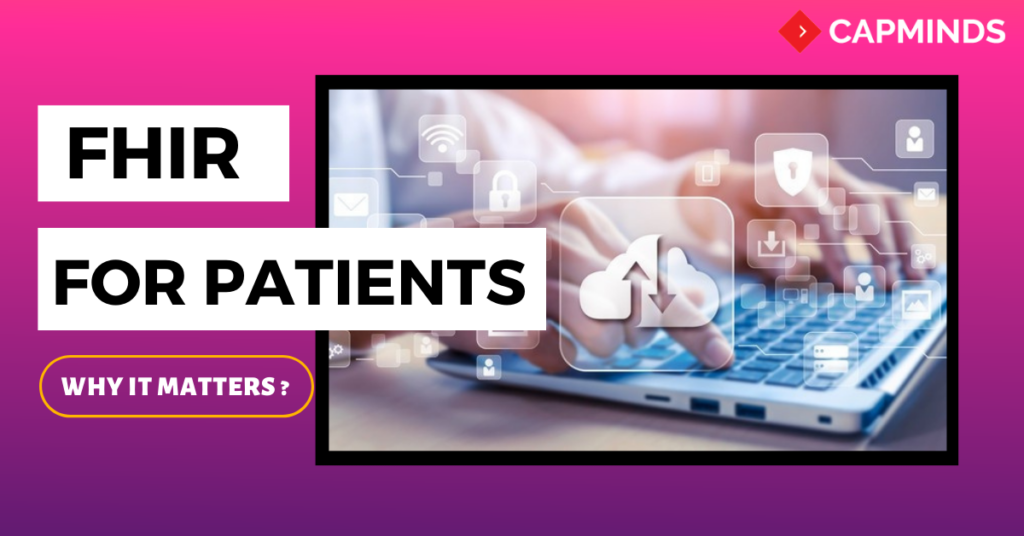Guide To FHIR For Patients: Why It Matters?
FHIR offers vast improvements when compared to the previous standards, and increased interoperability in healthcare systems stood first among all. As we all know that FHIR benefits healthcare providers, payers, and patients, patients are the one who stands to gain the most from interoperability.
Nowadays
patients are started showing a slight interest in their healthcare data. By controlling their healthcare data, the
patient can understand their health condition even better and make better
decisions about their medical care, can deal with health insurance plans that
suit best for their needs, and more. In this article, we discussed why FHIR
matters for patients.
3 Reasons
That Proves Why FHIR Matters For Patients
1.
Patient Can Take Control In Their Own Healthcare
Patient
engagement is the most critical factor for achieving successful practice
growth. The significant difficulty in achieving this relates to the services
and portals that differ from provider-to-provider and healthcare practice to
practice. The greatest benefit of FHIR is that it has the ability for patients
to engage in their healthcare, with the ability to quickly and easily share
data, the costs can also be eliminated.
Famous
Tech firms like Microsoft, Google, Apple, and Amazon are started moving towards
FHIR. Their association with the tech that patients utilize each day considers
fitness trackers and other healthcare applications incorporated into the
patient’s general health record. Patients who are tracking calories, or logging
their exercise will have the option to rapidly and effectively communicate that
information to their medical services supplier similarly that their suppliers
will have the option to send information back to them.
The patient can take control of healthcare data and with whom they want to share. For example, the patient can able to decide whether they will share data from their last provider visit, the last month, or the last year. Apart from this, they can also control the types of data that are shared. For example, they can only share prescribed medications or diagnoses and treatments.
RELATED: 7 PROVEN REASONS THAT SHOWS YOU WHY FHIR IS BETTER
2.
Adult Caregivers Can Benefit From FHIR
Tracking
health data from various systems is a difficult task for even individual
patients, the same way for adult caregivers it’s a whole new level of
difficulty. Here Personal FHIR Record (PFR) reduces this kind of burden by
allowing a single point with which all data streams can connect. This centralization
of data makes it very easy to aggregate data and analyze it in bulk. It
eliminates the need for time-intensive phone calls and records requests,
allowing caregivers to transport data between appointments and providers
easily.
3.
FHIR Improves Patient Care
Like we discussed in our previous blog, how interoperability can improve patient care? Improved quality of care is good for both providers and patients. By creating benefits for both, FHIR allows healthcare providers to focus more on their patient’s clinical needs and less on their administrative works. The secure aggregation of data from numerous specialties will allow providers to identify patterns in patient health and allow them to issue improved preventative care for patients showing early warning signs. With FHIR, the improved portability and interoperability will lead to timely and safer patient care.
Final
Thoughts
Digging deeper, FHIR serves numerous benefits for the healthcare industry and offers a great opportunity for patients to take care of their healthcare fully. Ready to take advantage of FHIR for your healthcare practice? Make your development much faster with CapMinds FHIR implementation and support services.

 Author: Pandi Paramasivan
Author: Pandi Paramasivan

